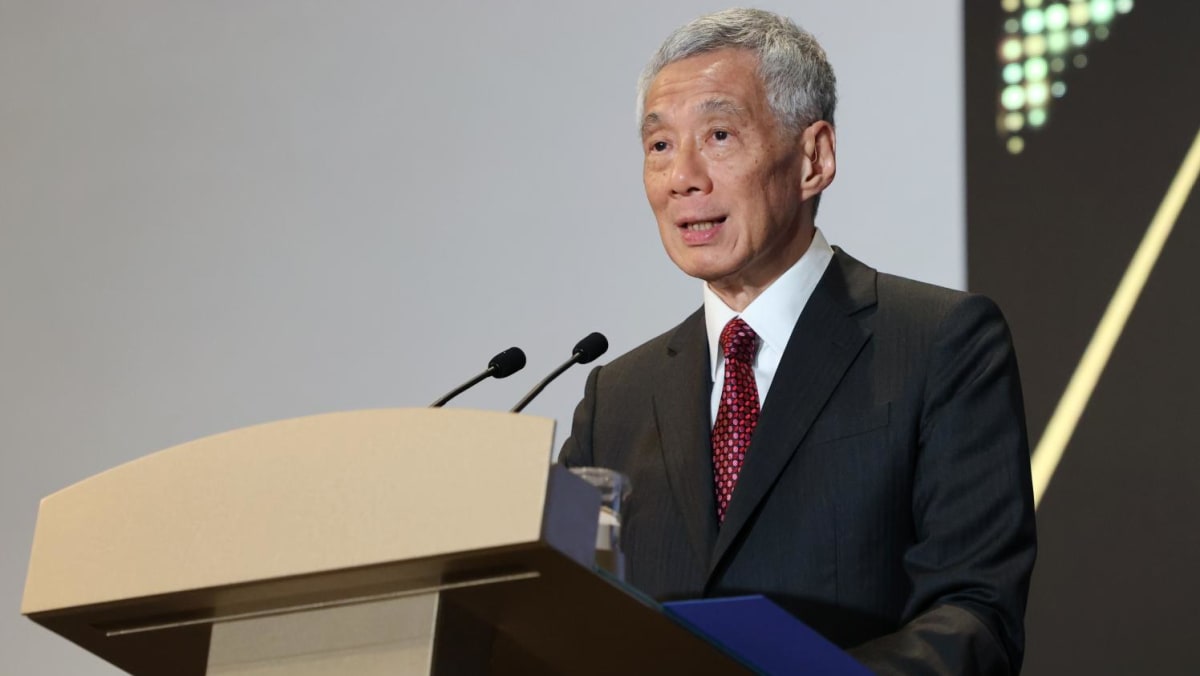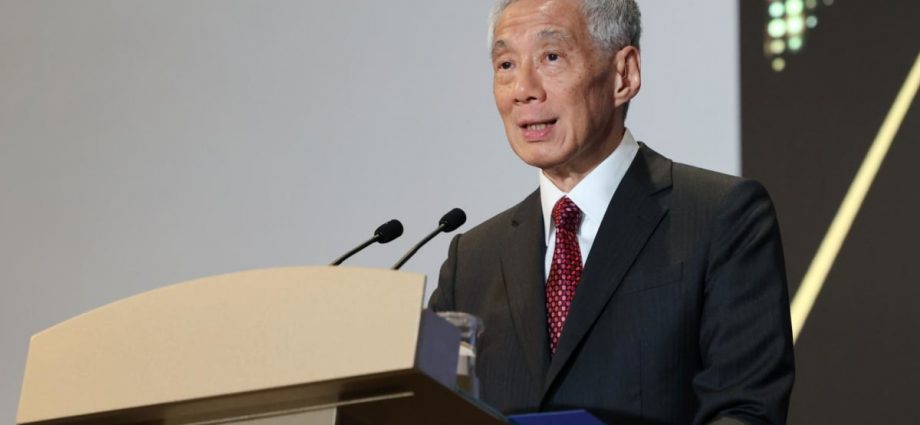
Mr Lee gave the example of Section 377A – the colonial-era law criminalising sex between men.
“Islam considers homosexual acts to be sinful. Many Christians think so too. But what some religions consider a sin should not necessarily therefore be made a crime,” said the Prime Minister, who announced during his National Day Rally (NDR) speech last month that Singapore would repeal the law.
“Like every human society, Singapore also has gay people in our midst. And like other Singaporeans, gay people want to be respected and accepted just like their fellow citizens.
“For reasons that the Government has explained, we intend to repeal S377A, and to decriminalise sex between men,” he said.
But Mr Lee also stressed that the Government does not want the repeal to trigger any drastic shift in societal norms; lead to same-sex marriage; or affect the many policies that are based on the existing definition of marriage as between a man and a woman.
The Government intends to uphold and safeguard the institution of marriage, and will amend the Constitution to protect the existing definition of marriage from being challenged constitutionally in courts, he said, reiterating a point he made at the NDR.
“Muslims are not directly affected by this, because Muslim marriages are governed separately by Muslim law. But understandably, Muslims are concerned too. Hence we have reassured them that they will remain free to preach and practise what Islam teaches on sexuality and marriage,” said Mr Lee.
“The broader social context within which Muslims live in Singapore will not suddenly change.”
Another example of a sensitive issue was the wearing of the Muslim headscarf or tudung in healthcare, he said.
Before changing the rules to allow nurses in the public healthcare sector to wear one with their uniform if they wish, the Government spent years preparing the ground.
“We waited till non-Muslims became more comfortable interacting with Muslims wearing tudung. We held many consultations with different community groups and religious leaders. We made sure that both Muslims and non-Muslims understood what we were doing and what our aim was,” said Mr Lee.
“Finally, last year, we made the change, and I am happy that it has gone smoothly and been well accepted.”
The wearing of tudung by nurses and the repeal of Section 377A are examples of how Singapore approaches such difficult issues to preserve the mutual trust and understanding between different communities, he added.
‘REGARDLESS OF RACE, LANGUAGE OR RELIGION’
On Friday, Mr Lee also said the Government has played an important role in setting the overall direction and tone for Singapore society.
“Our starting point is that it is possible for individuals to be good Muslims – or for that matter, good Christians, Buddhists, or Hindus – while also being good citizens,” he said.
He pointed out that Singapore’s founding fathers were determined to uphold the principle of equality – “regardless of race, language or religion”, as enshrined in the national pledge.
This has served as an ideal and aspiration for all of Singapore to work towards, generation after generation, said Mr Lee.
“The Government fought with single-minded determination to uphold multiracialism, to bring the different races and religions together, and to reject sectarian or majoritarian politics,” he said.
“Many of our policies and laws have been designed to uphold this principle.”
Mr Lee also spoke about the role of minority and majority communities in Singapore.
“The minority communities, including Muslims, also contribute and do their part to maintain racial and religious harmony and social cohesion,” he said. “They approach issues with a spirit of mutual understanding and accommodation. They understand that because of our multiracial context, some things have to be done differently from elsewhere.”
Singapore is fortunate to have had Muslim religious leaders who understand this point, Mr Lee pointed out.
He added that it was important for minority communities to maintain the trust and confidence of other groups in society, while also participating fully in the economic and social life of Singapore.
“This includes dispelling fears and suspicions over the spread of extremist ideologies and terrorist threats. In Singapore, our Muslim leaders work closely with the Government and community partners to guide the community in the right direction,” said Mr Lee.
He called on majority groups to also do their part by rejecting majoritarian politics and adopting an attitude of compromise and accommodation.
“In fact, in a multiracial society, the majority group has to go one step further,” added the Prime Minister.
This means always recognising and respecting the interests of the minorities; realising that in any society it is harder to belong to a minority than a majority group; and being especially mindful never to make the minority groups feel left out, he noted.
“Fortunately, Chinese Singaporeans, as the majority racial group in Singapore, understand this. Perhaps it was easier because while Chinese Singaporeans are the majority race, they belong to different faiths. No religious group forms a majority in Singapore,” Mr Lee said.
But he acknowledged that it has not all been “sweetness and light”.
From time to time, individuals or groups have overstepped the limits and caused offence to other groups, or tried to exploit race and religion to cause trouble or gain support.
“The Government has had to stand firm, call out and take action against those working up these divisive passions, and convince Singaporeans that that is the surest way to destroy our harmonious society,” Mr Lee said.
“The Government has done so even at the risk of losing political support and votes.”

